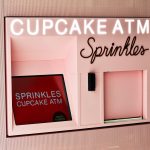Have You Wondered Why You Crave Sugar? by Joan Kent, PhD
Has a sugar craving ever made you go off your healthful diet? Many people claim that cravings never go away, but they absolutely can and do. Completely.
Why shouldn’t we simply eat sugar when we crave it? Well, for starters, sugar lowers our quality of life in a couple of ways. It affects our health. High levels of insulin triggered by sugar promote inflammation, which is medically recognized as the root cause of most, if not all, disease.
Sugar also affects food intake. It increases appetite by inhibiting the brain’s satiety center, and it changes food preferences, prompting the desire for foods high in sugar and/or fat. Both are linked to the brain’s release of endorphins (beta-endorphin).
What are cravings?
A craving is an intense urge to eat a particular food. It’s not hunger. A desire for sugar is one of the most common cravings. Some people can indulge their cravings without repercussions. For others, giving in to cravings can undermine workouts or lead to weight gain, mood swings, diabetes, or other health issues.
We typically hear that cravings result from low blood sugar, emotions, or biological need. Those explanations leave much unexamined. Let’s look at the real reasons for sugar cravings.
Too little fat
Science journals refer to the sugar-fat seesaw, an inverse relationship in the fat and sugar we eat. As one decreases in the diet, the other increases. In fact, the low-fat craze from 1985 to 1995 led directly to the overconsumption of sugar. [Just as the sugar industry planned, but that’s a topic for another article!]
Fats help to control sugar cravings by stabilizing blood glucose, and by influencing hormones and brain chemistry. When fat enters the small intestine, the hormone cholecystokinin (CCK) is released. CCK reduces hunger, appetite, and the desire for carbohydrates. When someone is on a low-fat diet, less CCK is released. That can result in increased appetite, particularly for carbs.
But how does sugar enter the picture? The brain releases endorphins (beta-endorphin) when we eat sugar or fat, and we become accustomed to our “usual” endorphin level. Lowering our fat intake decreases endorphins, making the brain want endorphin-triggering foods. That leads to cravings for either fat or sugar. If you won’t eat fats, the sugar cravings take over.
Withdrawal
Sugar, alcohol, and opiates all affect the same key brain chemicals. Someone who has recently quit alcohol or drugs may have intense sugar cravings. That’s why AA meetings feature back-of-room cookies or brownies. Eating sugar when you crave it can backfire, though, due to a phenomenon associated with internal triggers.
Triggers
External triggers involve seeing or smelling an appealing food and wanting it.
Internal triggers involve eating a small amount of a trigger food and wanting more. Drug research calls this “priming.” It’s linked with a specific brain receptor for the chemical dopamine. Eating a little of what we crave is “mainstream wisdom,” but it’s terrible advice for sugar addicts, who are highly susceptible to priming.
I consider priming the best argument against eating sugar when you crave it—it’s likely to start a binge. Priming also makes it difficult to wean from sugar slowly. Going “cold turkey” is usually better. Not everyone wants to hear that news, and it’s understandable after years of addiction. The fact remains, however, that priming has the potential to unleash big cravings.
Stress
Okay, it’s mean, but when researchers want to stress mice, they pinch their tails. The mice run to their food bowls and eat. Endorphins triggered by stress increase their appetite. When stressed mice are offered both mouse chow and crumbled cookies, they choose cookies. Endorphins make sugar more appealing.
Of course, people are more complex. Some are sensitive to endorphins and react to any stress by eating. For others, short-term stress decreases appetite.
In long-term stress, cortisol remains elevated and continuously stimulates appetite. Long-term stress decreases serotonin, dopamine, and norepinephrine, which leads to cravings and a preference for carbohydrates and sugar. Low serotonin also makes us impulsive—and likely to eat the junk we crave.
Low serotonin
Serotonin is a well-known brain chemical. Low serotonin may contribute to depression. The chemical also has profound effects on cravings, appetite, and food preferences.
Serotonin disturbances include PMS, seasonal affective disorder, menopause, chronic alcohol use and/or insulin resistance, which can result in increased appetite and cravings, especially for sugar. Sugar increases symptom intensity and magnesium excretion, leading to irritability, anxiety, or depression. These states can bring on more cravings in a self-perpetuating cycle.
Low protein
Eating too little protein can be a primary cause of sugar cravings. Proteins are built from amino acids, used to form brain chemicals. When they’re at optimal levels, we crave sugar less and resist cravings more easily.
Protein triggers CCK as it enters the small intestine. A low-protein (or low-fat) diet can decrease CCK and key brain chemicals, including serotonin. That will trigger sugar cravings.
Protein is essential in eliminating sugar cravings
High-protein foods include fish, poultry, grass-fed beef, lamb, pork, eggs, shellfish, cottage cheese, and plain Greek yogurt with 18-20 grams of protein per serving. If you don’t eat animal products, I recommend plant protein powders from hemp, peas, vegetables, or brown rice to ensure adequate protein to eliminate cravings.
Keep in mind that nuts are mostly fat. It’s healthful fat, mainly monounsaturated, so nuts are good to eat. But they are not protein. Many nuts have more carbohydrate than protein. Some people resist these facts, but the numbers don’t lie. Almonds, an exception, have virtually identical levels of protein and carb—but not much of either and, of course, are primarily fat.
Quinoa is mostly carb, with about as much protein per cup as two medium-sized potatoes. The well-known vegetarian beans-and-rice combo is mostly carb. Lentils are primarily carb; less than half their nutritional content is protein. For what it’s worth, these foods are low in fat but not high in protein.
Many people mistakenly believe seeds are primarily protein. Chia seeds, for example, contain primarily carbohydrate: 12g fiber, 9g of fat (mostly polyunsaturated) and 4.7g of protein. A cup of sunflower seeds supplies roughly equal amounts of protein (29g) and carb (28g) but carries 72g of fat and 818 calories. Hemp seeds offer a better protein-to-carb ratio: 2 tablespoons provide 6.3g of protein and 1.7g of carbohydrate, but they still contain 9.7g of fat. Pumpkin seeds also offer a better protein-to-carb ratio. A quarter cup provides 9.7g of protein, 3.4g of carbohydrate and 15.8g of fat.
Never skimp on protein if you’re trying to end sugar cravings. A protein-to-carb ratio that greatly favors protein is ideal. Plant-based protein powders are truly helpful here.
Stopping cravings now and later
B vitamins are co-factors that help form the brain chemicals that stop cravings: serotonin, dopamine, and norepinephrine. For a short-term solution, try liquid B-complex. Take one teaspoon of B-complex when you have a craving and give it a few minutes to take effect. [Check with your doctor first to make sure B vitamins are okay for you to take.]
Eliminating sugar cravings more permanently involves a coordinated plan that includes the following:
- Eat meals that include protein and healthful fats along with your other foods. Do it consistently.
- Avoid casual tastes of sugar, even if everyone else is having some.
- Learn and use stress management techniques.
- Use liquid B-complex whenever an unexpected craving occurs.
This approach works, and the effects will strengthen over time. When you hear people say they can never conquer their sugar cravings, you’ll be armed with the knowledge that it is possible to banish them—for good.
For more information on cravings and conquering sugar, just visit LastResortNutrition.com and grab your free Craving Crusher Consult. Discover how easy it can be to free yourself of cravings and feel great!
Brought to you by Dr. Joan Kent, best-selling author of Stronger Than Sugar: 7 Simple Steps to Defeat Sugar Addiction, Lift Your Mood, and Transform Your Health.



